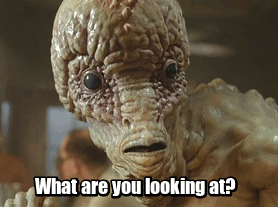TwoSix
Programs in KOBOLD
So if we accept that the "multiversal weirdness" of early D&D was part and parcel of the fantasy/sci-fi cutural zeitgeist of the '60s and '70s (which I totally accept), was the development of fantasy settings as contained, discrete entities (exemplified by the 2E era setting boom) also caused by a change in the fantasy/sci-fi zeitgeist in the '80s and '90s? If so, what would have been the primary drivers?


